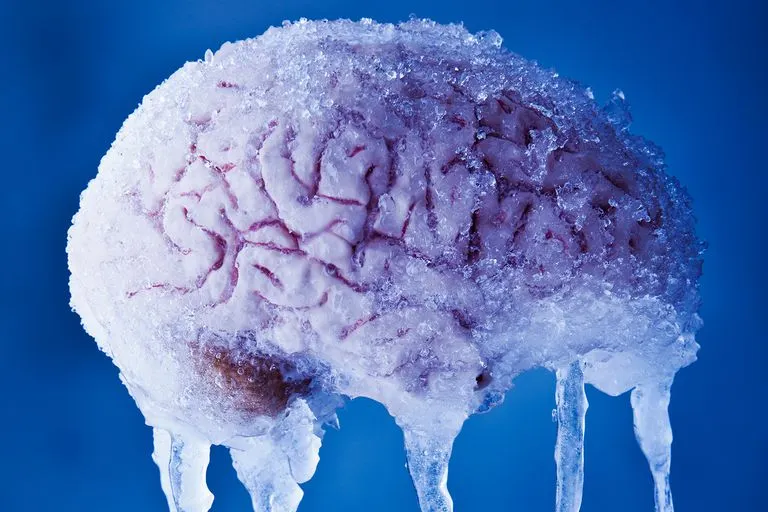Uugh! Brain Freeze! so awful, the head is very sore throbbing. And the most annoying thing is, not everyone gets it. That's right, some people can still eat as much ice as they want, and never feel anything. Very annoying right?
What is Brain Freeze?
Brain Freeze is a throbbing pain that is felt after consuming very cold foods or drinks. This phenomenon has become one of the scientific mysteries, which have existed since the 1800s. And until now scientists are still researching it.
How is Brain Freeze Work?
The leading theory states thats, the cause of Brain Freeze is closely related to the physical response that everyone should feel. The majority of scientists think that Brain Freeze is caused by something cold temperature that touches the upper wall of the mouth, which triggers the trigeminal nerve. The trigeminal nerve is a nerve that is responsible for giving you a sensation that will feel around your head. That is why when these nerves touch the temperature below freezing, then piercing pain will appear around our temples. In fact, different nerves are also different parts of the nerves that are said to be sick. For example, toothaches, will disrupt the mandibular nerve causing pain around the center of the skull. However, when it came from Brain Freeze, the source of the pain would feel different from most other headaches. It turns out that this phenomenon is similar to why our feet and hands hurt when they are too cold. When that happens, our body will direct blood to fill the cold area. With the intention that the temperature returns to normal. This process makes our blood vessels widen, causing a throbbing pain. Similar to the occurrence of Brain Freeze, the blood vessels will expand, send blood flow to the wall above our mouth, and in the process cause pain that pierces us. In a study, only 37% of people in America, 41% of children in Taiwan, and 15% of people in Denmark really felt it. The three-part nerve is a natural part of the body. In the case of Brain Freeze, everyone should feel the same, right? But keep in mind, scientists can only speculate. Maybe this nerve sensitivity will vary in various regions of the world. One thing that seems clear is, people who experience Brain Freeze are more susceptible to other mysterious headaches, namely Migraine. In a study 93% of migraine sufferers were very vulnerable to this phenomenon. So the experts concluded that the trigeminal nerve plays a role in the occurrence of these two unique headaches.
How to Overcome Brain Freeze
Whatever the reason, hang on, Brain Freeze usually only lasts 20-30 seconds. You can press the wall over your mouth with the tongue, so that the trigeminal nerve temperature returns to normal. And from now on, start being careful when eating something cold, don't eat it too fast.


